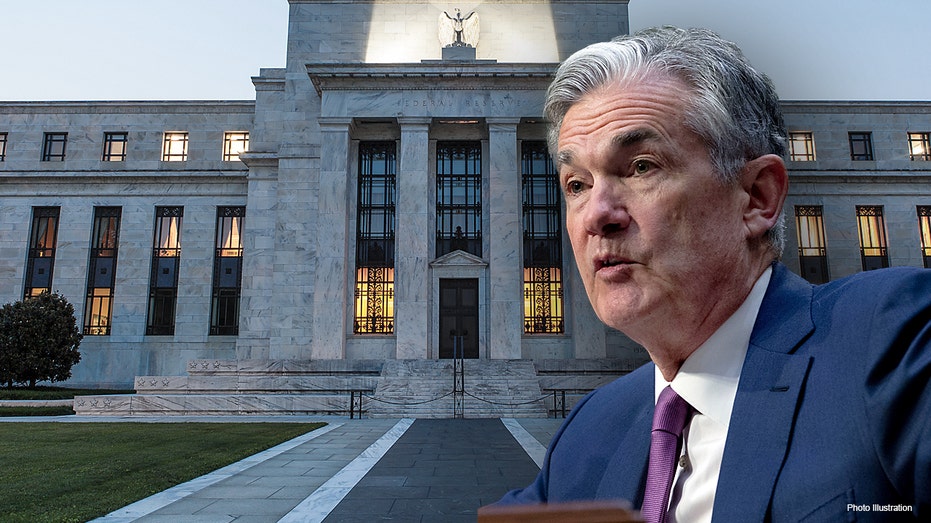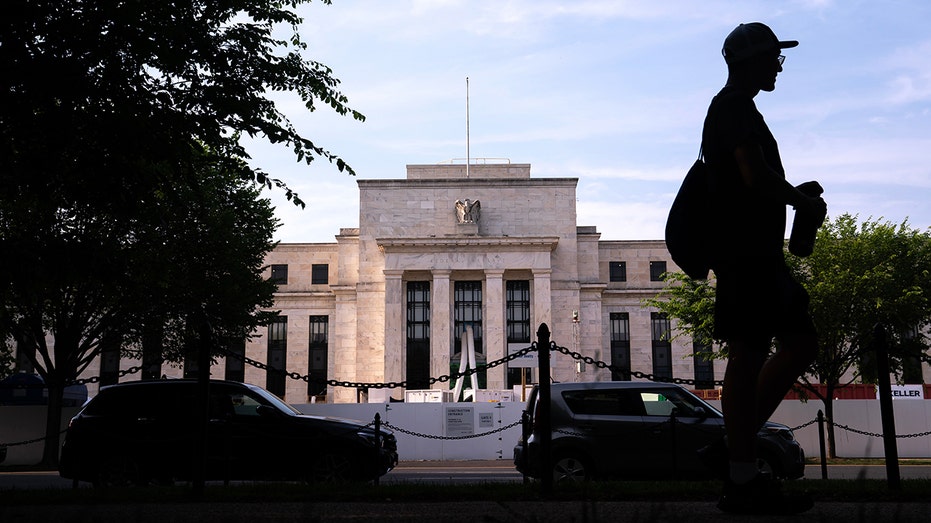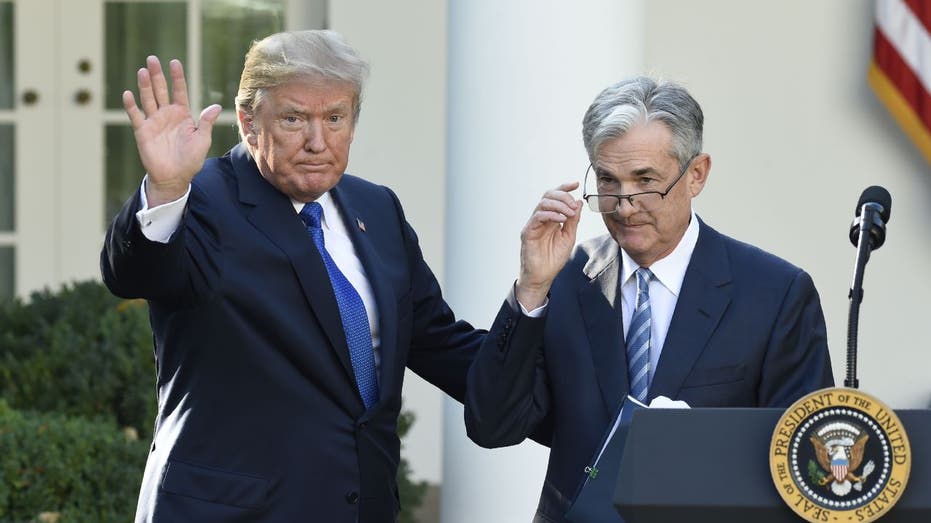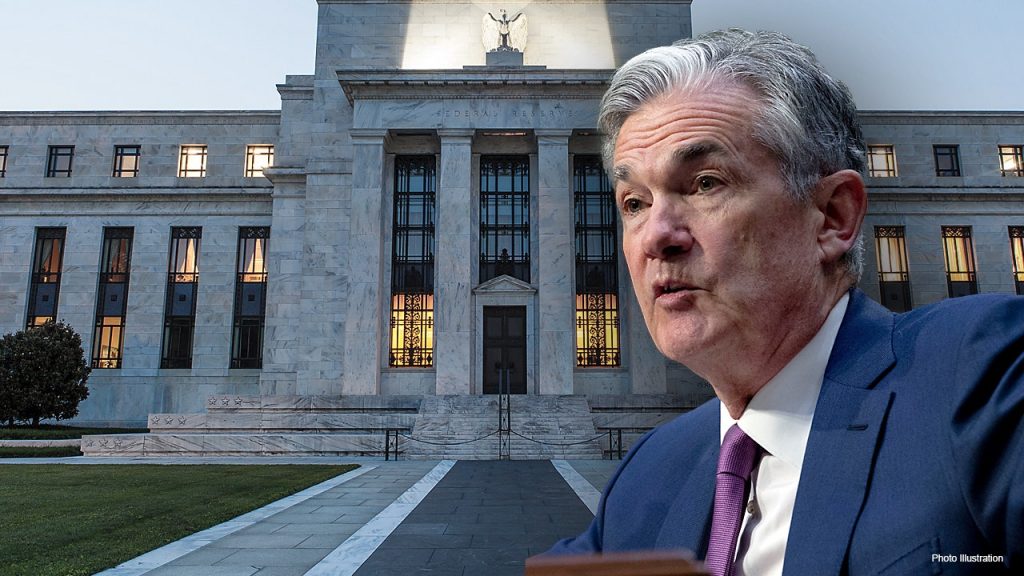Former NEC Director Lael Brainard unpacks the rate cut waiting game on The Claman Countdown.
A new report from Goldman Sachs economists examined the risks of undermining the independence of central banks to set monetary policy free of political interference.
The report concluded that it can lead to higher inflation, reduced stock prices and a weaker currency.
Goldman Sachs economists led by Jan Hatzius examined studies related to the independence of central banks around the world and found: “Economic commentators broadly agree that more politically independent central banks are better able to balance their goals of maintaining low and stable prices while keeping economic output near full potential.”
Among the risks posed to the independence of central banks that were noted in the report is public political pressure, which “could erode the public’s perception of U.S. monetary policy independence.” Other risks include legal changes that allow for the removal of Federal Reserve officials, as well as an actual effort to remove Federal Reserve Chair Jerome Powell or other Federal Reserve officials despite having walked back his recent threats to do so.
The report comes amid President Donald Trump’s ongoing criticism of Powell. The president has repeatedly called for the Fed to lower interest rates, during his first term and in recent months. He has also threatened to fire Powell on several occasions, though he has since said he won’t attempt to remove the Fed chair. There are questions about whether he has the legal authority to do so.
TRUMP TAKES POWELL OFF THE CHOPPING BLOCK: WHY IT MATTERS TO MARKETS

President Trump has criticized Fed Chair Jerome Powell regularly during his first and second terms in the White House. (Photo Credit: Getty Images / iStock / Getty Images)
Last month, the president wrote in a social media post that, “Powell’s termination cannot come fast enough” and that the Fed chair is “always TOO LATE AND WRONG.” He also urged Powell to move forward with “preemptive cuts” to interest rates, comments that contributed to a steep market sell-off amid broader uncertainty over trade policy.
He later backtracked on the threat to fire Powell, telling reporters he had “no intention of firing him.” Following the Fed’s decision to hold rates steady for a third straight meeting in May, Trump wrote in a social media post that Powell is a “FOOL, who doesn’t have a clue. Other than that, I like him very much!”
TRUMP SLAMS JEROME POWELL AS ‘MR. TOO LATE,’ CALLS FED CHAIRMAN A ‘MAJOR LOSER’

The Federal Reserve is tasked with balancing a dual mandate of maximum employment and stable prices. (Photographer: Nathan Howard/Bloomberg / Getty Images)
The report explained that under current law, the Federal Reserve chair can only be removed “for cause” and that Powell has said in press conferences when asked about his job security that the president removing him is “not permitted under the law.” That precedent also protects the governors of the regional Federal Reserve banks.
However, it noted that there is uncertainty over how pending court cases involving other independent federal agencies could impact the Federal Reserve, potentially impacting the central bank’s independence.
“Across countries, institutional changes that increased central bank independence – including the process for appointing and removing officials – lowered inflation by ½-1 [percentage point] in subsequent years, suggesting an inflation cost if such protections are reversed (even if not acted upon),” the economists wrote.
TRUMP CALLS FED’S POWELL A ‘FOOL’ AFTER CENTRAL BANK HOLDS INTEREST RATES STEADY

President Donald Trump nominated Jerome Powell to serve as Federal Reserve chair in 2017. (Saul Loeb/AFP via Getty Images / Getty Images)
The report also noted that unscheduled leadership changes at global central banks have historically been associated with a 1 percentage point increase in inflation following the leader’s ouster.
“These findings are directionally consistent with market reactions to President Trump’s comments on the prospects of removing Chair Powell in recent weeks,” the economists wrote. “Financial conditions tightened, equity valuations pulled back, and the U.S. dollar weakened after President Trump raised the prospect of removing Chair Powell on April 18, but these moves subsequently reversed after President Trump walked back his comments on April 22.”
The Goldman Sachs analysis explained that the bulk of institutional changes to monetary policy in advanced economies “have been in the direction of greater independence, while changes in the direction of reduced independence have mostly occurred in emerging economies.”
GET FOX BUSINESS ON THE GO BY CLICKING HERE
“Our evidence is therefore indirect, and extrapolating our quantitative estimates to evaluate the risks to U.S. monetary policy independence should be done with significant caution. In particular, we would expect a smaller impact in the U.S. given its greater macroeconomic and financial market stability,” they continued.
“Nevertheless, the available evidence from global central banks suggests that a shift toward a less independent Fed would likely result in upward inflation pressure, lower stock prices, and a weaker currency,” the Goldman Sachs economists concluded.

